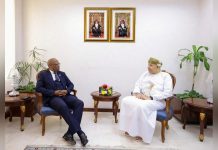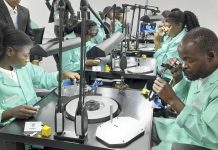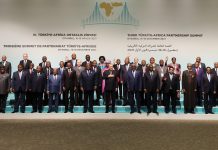Africa-Press – Botswana. The Botswana Satellite-1 project has been hailed as a development that will be useful to the country in terms of planning and decision making.
The national project, which started in 2020 and developed through collaboration between EnduroSat and Botswana International University of Science and Technology (BIUST) engineers aims to contribute to the digital economy as well as assist government in embracing technology as an enabler of socio-economic development.
Speaking during a one-day workshop on satellite technology and skills transfer training meant to capacitate Maun Senior Secondary School students on satellite technology yesterday, a lecturer from BIUST, Dr Boyce Sigweni said the project was good for the country as it would help solve societal and development challenges.
He said the satellite was mainly air conservation, noting that it took pictures of the country and allowed decision makers to make informed choices on what was happening across diverse fields like agriculture, natural resources management and urban planning among others based on accurate and up to date information.
On agriculture, students learnt that the satellite could help monitor crop health and yield potential and identify areas suitable for specific crops while on urban planning area, it could identify areas for infrastructure development as well as analyse population density and growth patterns.
Dr Sigweni further noted that the satellite could also help monitor water in the Okavango Delta to determine whether it was on the same level or there had been a shift.
“Here the community depend on fishing and if there is no water, there will be no fish. I came to Maun expecting Thamalakane River to be full but it is dry and if there were some pictures taken, I could have known before hand to make an informed decision,” he added.
However, the workshop was one of the build-up activities towards the launch of the BOTSAT-1 planned for March this year and was aimed at promoting Science, Technology, Engineering and Maths (STEM) education as well as fostering innovative thinking among students.
The training also emphasised the role of satellite technology and space exploration in solving real-life challenges as well as to strengthen the country’s human capital in STEM fields and foster a greater appreciation for space technology in line with Botswana’s vision for scientific advancement and innovation.
Dr Sigweni said one of the phases of the project was capacity building and entrepreneurship as they wanted learners to be innovators hence they were going around capacitating them and their teachers so that they form science clubs.
The selected students are expected to participate in a competition to be held prior to the launch and they were introduced to various aspects of the competition, including poster presentation, model designs, experiments and data analysis all themed around BOTSAT’s mission.
For More News And Analysis About Botswana Follow Africa-Press






